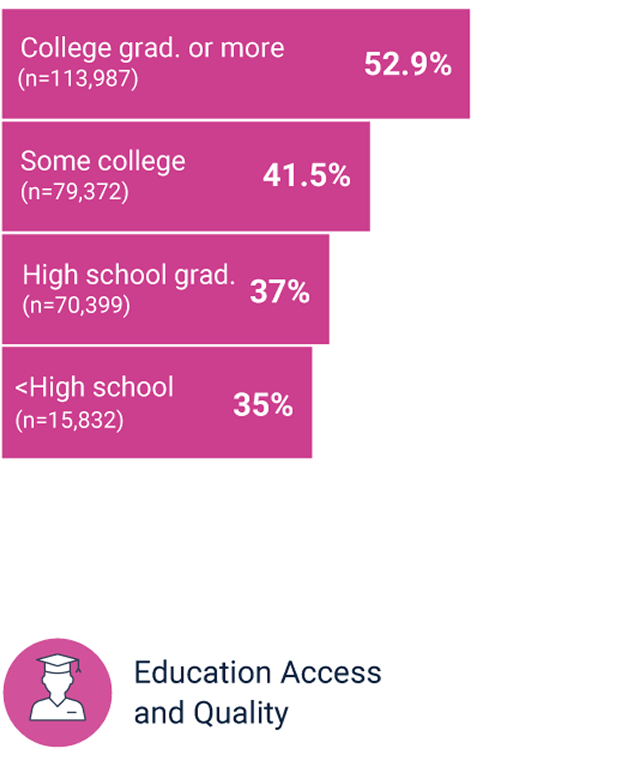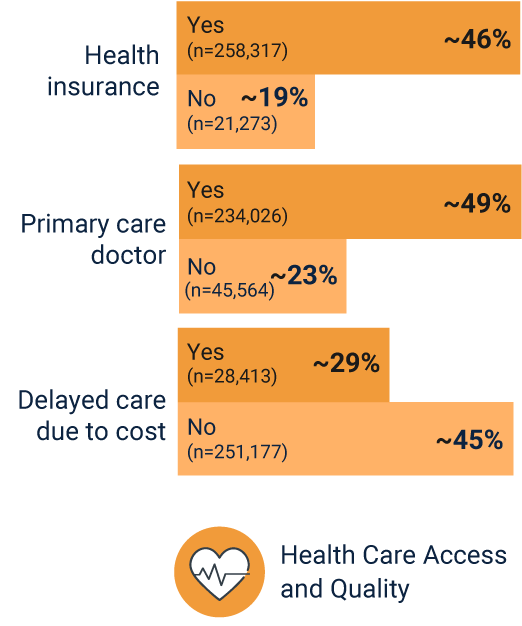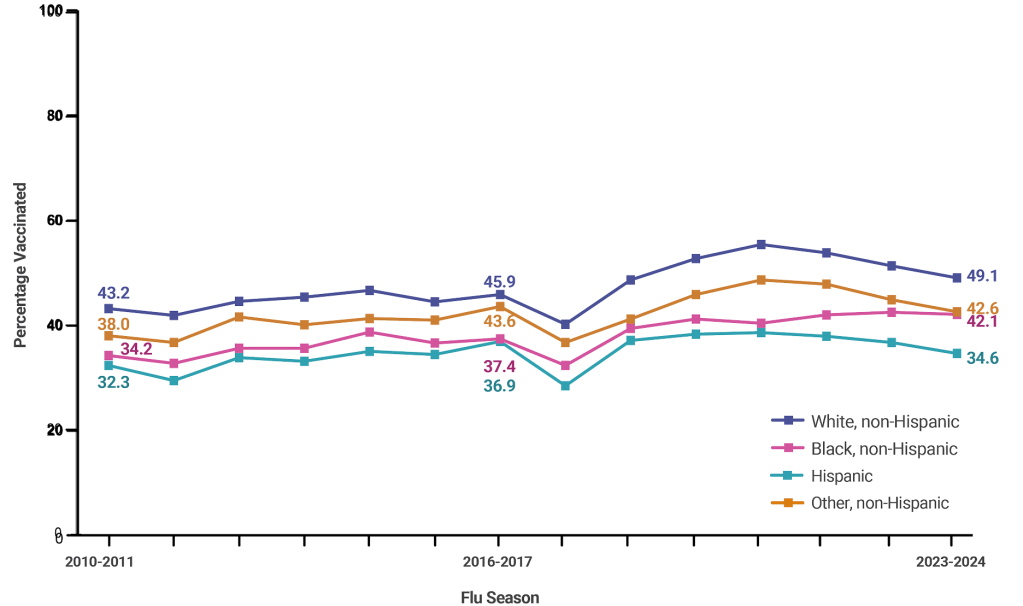
Impacting the vaccination gap
Social determinants of health drive disparities in vaccination uptake within the adult population.1
Impact of SDOH on Adult Influenza Vaccination Uptake1
Households with limited income, education, and health care access demonstrate lower rates of vaccine coverage.1
Influenza Vaccination Coverage Among Adults (N=279,590) BRFSS Survey, 20191,a:
Household Income
Educational Status


Health Care Access Factors


aBRFSS is a state-based random digit-dialed telephone survey conducted by the CDC among US adults aged ≥18 years which inquires about health conditions and behaviors.1
BRFSS, Behavioral Risk Factor Surveillance System; CDC, Centers for Disease Control and Prevention; Grad, graduate; SDOH, social determinants of health.
Lower influenza vaccination uptake is also exhibited among specific racial and ethnic groups.2
During the 2023-2024 flu season, 42.1% of Black (non-Hispanic) and 34.6% of Hispanic adults aged 18 years or older were vaccinated compared to 49.1% of non-Hispanic White adults.2
Flu Vaccination Coverage by Racial/Ethnic Group, Adults 18 Years and Older, United States 2010-20242


Data source: Behavioral Risk Factor Surveillance System (BRFSS).
See how your state measures up.
References
- Brewer LI, Ommerborn MJ, Nguyen AL, Clark CR. Structural inequities in seasonal influenza vaccination rates. BMC Public Health. 2021;21:1166. doi:10.1186/s12889-021-11179-9
- Centers for Disease Control and Prevention. Flu vaccination coverage, United States, 2023–24 influenza season. Published September 20, 2024. Accessed June 4, 2025. https://www.cdc.gov/fluvaxview/coverage-by-season/2023-2024.html